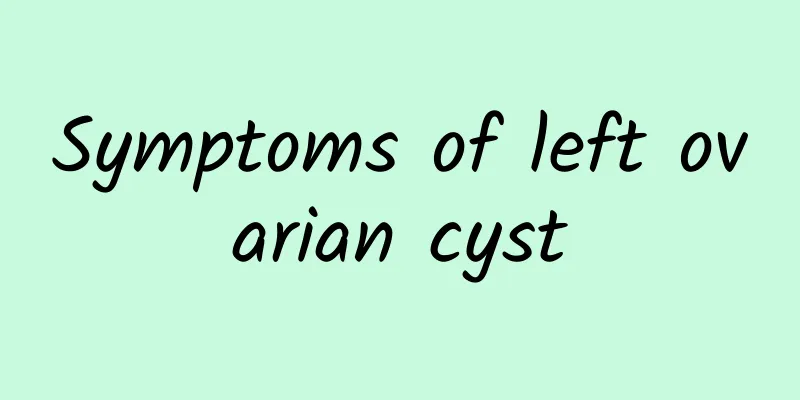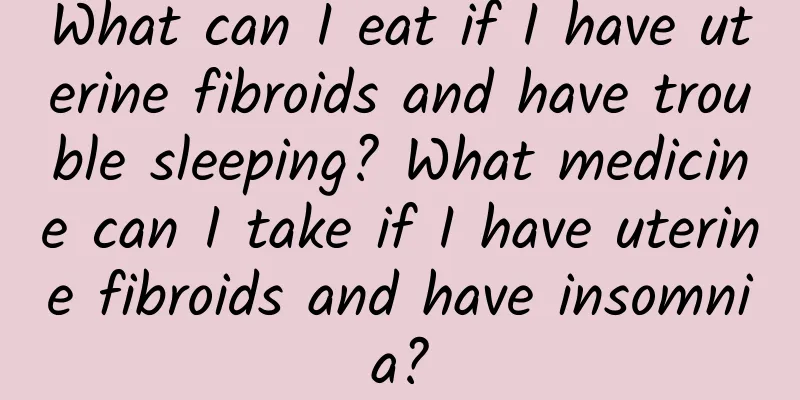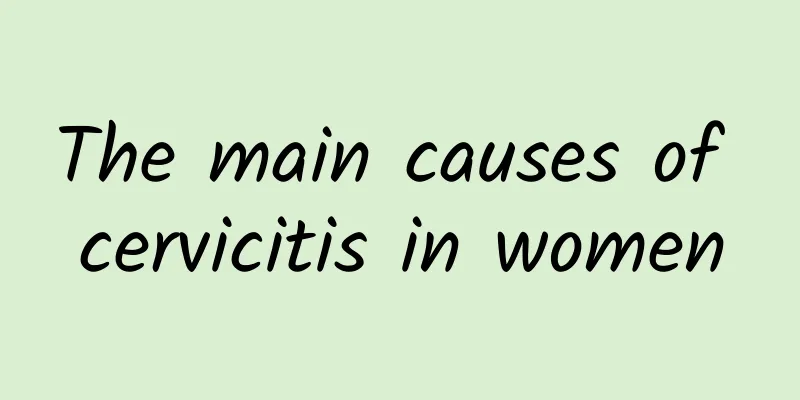What medicine to take for uterine fibroids and adenomyosis? Diet for uterine fibroids and adenomyosis

|
Uterine fibroids and adenomyosis are common gynecological diseases that have a certain impact on women's lives and health. According to medical research, diet plays an important role in the treatment and prevention of these two diseases. So, how should we adjust our diet and what drugs can help treat them? Let's find out together. 1. What are uterine fibroids and adenomyosis? 1.1 Uterine fibroids Uterine fibroids are benign tumors that occur in the female uterus. They usually grow in the muscle layer of the uterine wall and are formed by smooth muscle cells. The symptoms of uterine fibroids are varied, including irregular menstruation and excessive menstrual flow. Treatments for uterine fibroids include surgical resection and drug therapy. 1.2 Adenomyosis Adenomyosis refers to the situation where the endometrium is displaced into the uterine muscle layer, which often manifests as menstrual pain, irregular menstruation, etc. The treatment methods of adenomyosis mainly include surgical resection, drug therapy, etc. 2. Diet adjustment Adjusting your diet is one of the important means of treating and preventing uterine fibroids and adenomyosis. Here are some suggestions for dietary adjustments: 2.1 Increase fiber intake Cellulose is an important ingredient that helps digestion and defecation. Moderately increasing the intake of vegetables, fruits, and whole grains can provide rich fiber. The intake of cellulose can increase intestinal peristalsis, promote intestinal detoxification, and reduce the accumulation of hormones in the body. It has a certain preventive and therapeutic effect on uterine fibroids and adenomyosis. 2.2 Control sugar intake Excessive sugar intake can lead to obesity and metabolic disorders, thereby increasing the risk of uterine fibroids and adenomyosis. Therefore, it is necessary to control sugar intake, reduce the consumption of candies, desserts and carbonated drinks, and convert sugar intake to natural foods such as fruits. 2.3 Eat more foods rich in antioxidants Antioxidants can help remove free radicals in the body, reduce cellular oxidative damage, and help prevent the occurrence of adenomyosis and uterine fibroids. Antioxidants in food mainly come from fruits and vegetables, nuts, fish, etc. Increasing the intake of these foods can improve the body's antioxidant capacity. 3. Drug treatment Drug therapy is one of the common treatments for uterine fibroids and adenomyosis. The following are some commonly used drugs: 3.1 Progesterone drugs Progesterone drugs are a class of drugs commonly used to regulate female endocrine function. This type of drug can reduce the proliferation of the endometrium and the growth of uterine fibroids, and has a certain effect on the treatment of uterine fibroids and adenomyosis. 3.2 Chinese medicine conditioning Traditional Chinese medicine has a certain application in the treatment of uterine fibroids and adenomyosis. For example, Chinese medicines such as angelica and safflower can regulate blood and qi, promote the discharge of endometrium, and help relieve symptoms. 3.3 Side effects of drug treatment It should be noted that drug treatment may have some side effects, such as drug allergy, gastrointestinal discomfort, etc. When choosing drug treatment, you should consider your own situation, doctor's advice, and use it according to the doctor's instructions. Uterine fibroids and adenomyosis are common diseases that affect women's quality of life. Adjusting diet and using drugs properly are important treatments. Properly increasing fiber intake, controlling sugar intake, and consuming foods rich in antioxidants can help prevent and alleviate the symptoms of uterine fibroids and adenomyosis. At the same time, you need to pay attention to the side effects of drugs during drug treatment. If you have questions or your symptoms worsen, you should consult a doctor in time to ensure that you get the appropriate treatment plan. |
Recommend
What are the causes of premature amenorrhea?
The causes of premature amenorrhea include geneti...
What are the symptoms of cervical erosion in the elderly? Analysis of the symptoms of cervical erosion in three degrees
Cervical erosion is a common and frequently occur...
Treatment of acute adnexitis
The ovaries rarely become inflamed alone, because...
Which department should I go to for insomnia? It turns out that these departments can treat insomnia
Which department should I go to for insomnia? Now...
Can drinking banana vinegar help you lose weight?
It is widely circulated on the Internet that bana...
How to care for cervical warts after surgery
In order to completely cure cervical warts, profe...
What should I pay attention to when treating cervicitis?
What should be paid attention to in the treatment...
Learn more about the causes of cervical hypertrophy that cannot be ignored
Early detection of symptoms of cervical hypertrop...
What is the fastest way to induce abortion?
Medical abortion is the most widely used method f...
Just one chair! Light yoga to reduce edema in the office
【Eliminate edema with the chair version of the ko...
Explain the symptoms of cervical hypertrophy in detail
The most common disease in the cervix is cervic...
Will pelvic inflammatory disease cause gastrointestinal reactions?
Pelvic inflammatory disease is a very harmful dis...
Specific causes of acute pelvic inflammatory disease
Pelvic inflammatory disease is a relatively serio...
Patients with ectopic pregnancy should pay attention to their symptoms in time
Nowadays, many women suffer from ectopic pregnanc...
What causes dysmenorrhea in women?
Many women experience dysmenorrhea during their m...









